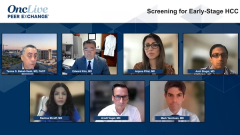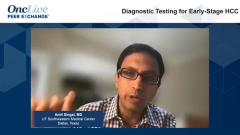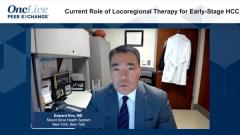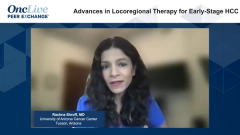
Advances in Locoregional Therapy for Early Stage HCC
University of Arizona’s Rachna Shroff, MD, describes the role of systemic therapy with locoregional treatment for early stage hepatocellular carcinoma and highlights treatment strategies of interest that remain under investigation.
Episodes in this series

Tanios S. Bekaii-Saab, MD, FACP: Rachna, I want to go to you on this. We’ve seen in the past quite a bit of activity with sorafenib, which is mildly active at best, and around TACE [transarterial chemoembolization] and around surgery, and overall, we’ve seen more failures than successes. As systemic therapy continues to evolve in the more advanced setting, do you see any role for systemic therapy, peri-TACE, or peri locoregional therapy, whatever that locoregional therapy could be?
Rachna Shroff, MD: There are a number of trials ongoing to investigate these questions. A multidisciplinary conversation that involves looking at locoregional therapy in conjunction with systemic therapy absolutely needs to be part of this conversation now. Referral patterns and such are very different, obviously, across the country and across the globe. Sometimes people come in via hepatology to interventional radiology, and then by the time the medical oncologists see them, they’re Child-Pugh C score, and there’s not a whole lot we can offer. That’s why it’s really important we recognize this collaborative hand-in-hand approach because now to your point, Tony, we have systemic therapies, so it’s a world post-sorafenib. That’s an important question, and the trials that are ongoing will hopefully give us prospective definitive data in this area. Right now, we’re talking, we think that makes sense, but we don’t really know yet.
To your point Ed, about radioembolization and chemoembolization, a lot of the studies right now are looking specifically at chemoembolization, while there’s a shift, I would say at least in the United States, more toward a TARE [transarterial radioembolization] approach. It’s a little frustrating that I don’t know we’re going to get all of the answers we need simultaneously. But I absolutely think there’s going to be a role for that kind of combinatorial approach.
Transcript Edited for Clarity


















































